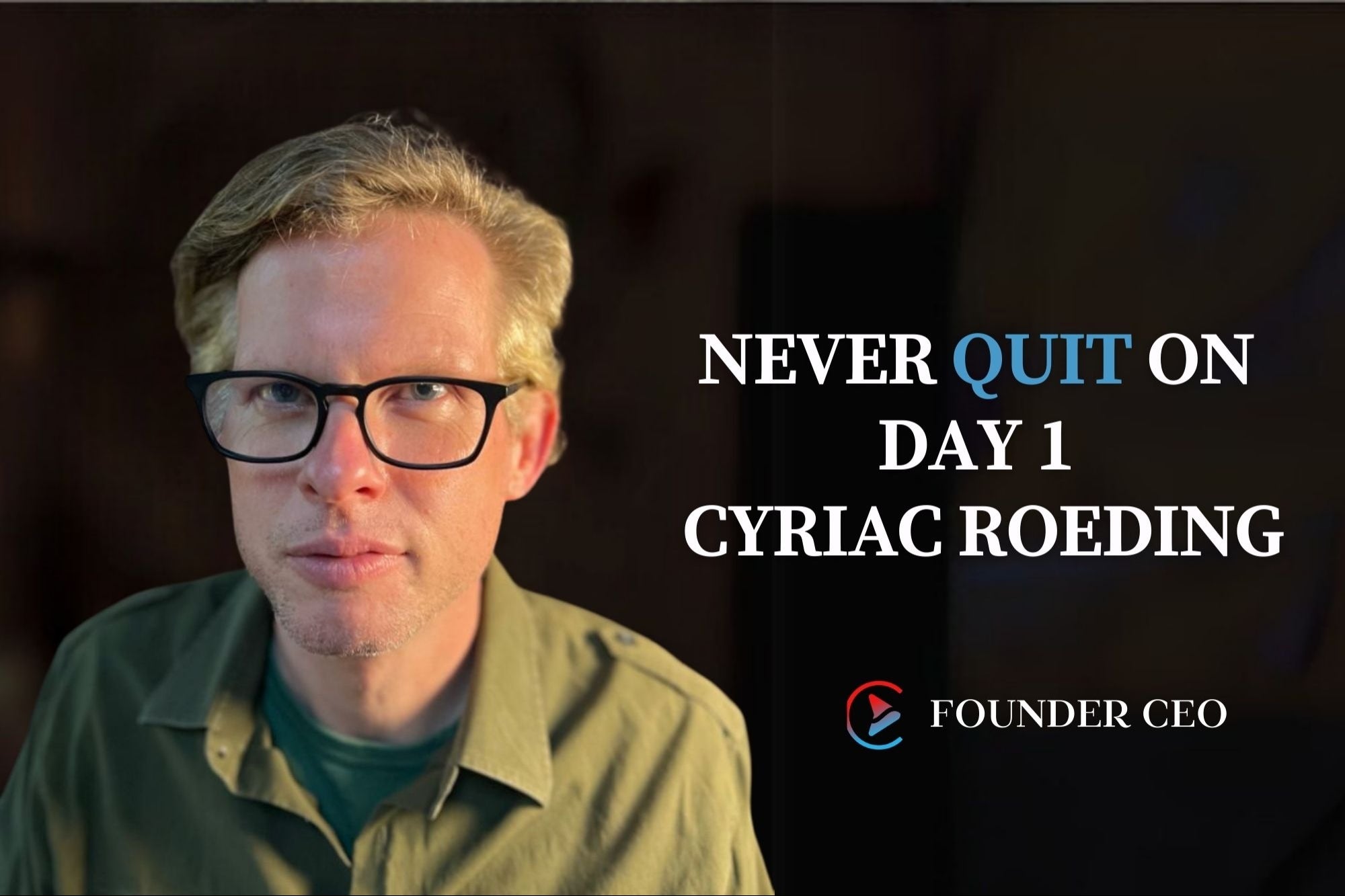6 Pillars of a Healthy Partnership, According to Jon Taffer From 'Bar Rescue' The star of 'Bar Rescue' and 'Marriage Rescue' breaks down the key ingredients of partnerships that work in good times and bad.
By Dan Bova

Here's something not many people saw coming: Jon Taffer, the human volcano who has been the star of Bar Rescue for six seasons, is turning his attention from booze to love on his new show Marriage Rescue.
How did a guy who became a star by screaming at people for serving watered-down margaritas and mushy mozzarella sticks step into the role of a marriage counselor? It's not as big a jump as you might think. "After my Bar Rescue experience and dealing with 178 failures," Jon Taffer told Entrepreneur, "you realize that businesses are relationships and relationships are businesses. And if partnerships are unhealthy and customer relationships are unhealthy, there's no way a business can be successful."
Marriage Rescue premieres Sunday, June 2 at 10 PM ET/PT on the Paramount Network. As the name implies, he's out to fix more than just salty snack menus and clogged kegs. On this new show, a diverse group of couples who are on the verge of permanent breakups will travel to a five-star Caribbean resort where they will be put through a host of psychological and physical challenges by Taffer in an attempt to repair their relationships. "It's all about helping people overcome difficult situations. I'm taking what I've learned in business and applying that to marriages. I don't think anyone has ever connected those dots before," Taffer says.
Related: 'Bar Rescue's' Jon Taffer Isn't Afraid to Call Founders on Their B.S.
Taffer has identified six key elements that define a healthy partnership, both business and personal: significance, connection, continuity, contribution, growth and variety. "I've seen so many businesses that would have succeeded if the partnership was stronger. And marriages that would have gotten through tough times if these six elements were in place. It's so important that we understand these things. Going to an investor with a financial report without having the relationship intact? This is a futile exercise in my view."
1. Significance
"If you and I were partners, and you own 10 percent and I own 90 percent, you still want to feel significant, don't you? You want me to listen to your opinions. If partners aren't significant to each other, the business has no chance of succeeding. You're not going to support something that diminishes you, that makes you feel insignificant as an owner, as a manager or even as an employee. Significance is key to a successful partnership. You want to call me and tell me my napkins should be purple, and I think that's the stupidest thing in the world? I'm going to return your call and I'm going to listen to you anyway and I'm going to treat you with dignity, because you must be significant to be content. You must feel significant to write the next check. You must feel significant to invest in the first place! Sometimes people take investor money, and once they have the money they diminish the significance of the individual. You know that's a formula for failure."
2. Connection
"In a partner relationship, shit, you and I have got to connect! We've got to be able to look in each other's eyes and talk together. We got to put aside ego together. You've got to have the confidence to tell me problems, and I need the ability to listen to those problems. If we don't communicate and connect, there's no chance that we're going to succeed -- in good times or especially in the bad times."
Related: Bar Rescue's Jon Taffer Says 'Every Excuse Is BS'
3. Continuity
"This is really critical. If you don't believe we have a future together, then putting time into the business today means nothing to you. We must have continuity. You and I have to believe in our future together in order to fight for today. Why fight hard if you don't believe the business and your role in it will be bigger and more impactful tomorrow?"
4. Contribution
"If you don't get something out of a relationship with a friend -- that's the friend that you just disappear from. You're not getting anything out of it, right? So if you don't get anything out of a partner relationship or an employee relationship, if you don't feel that someone is contributing? We're in big trouble. So as a manager or partner, I have to give the other person the opportunity to contribute. If you're not contributing, that's going to become resentment over time. So how can I pull you in? I make you feel significant and I communicate with you. These things will help you believe in your future, and at that point, you're probably going to contribute, aren't you?"
5. Growth
"There has to be some type of growth in any relationship to keep it engaging. So if we're working together, we're working in the business every day, but we also have to work on the business every day. When we work on it, that's our future. That's exciting. That's new ideas and upward momentum."
Related: 10 Things Jon Taffer of 'Bar Rescue' Wants You to Know About Running a Business
6. Variety
"We can't get into ruts -- particularly in today's quick-moving business and product and marketing environment. We must have variety and change in our lives. So if you and I were partners and you're handling the accounting side of the business and I'm handling the front of the house, we'd better darn well switch every once in a while to stay engaged. You better understand my side and I'd better understand your side. We both can't live on an island and be isolated from the things around us."
Put it all together Bar Rescue-style
"If we can pay attention and hit on all of these points, we have a formula for a successful partnership. We can raise money together, we can develop ideas, we can build relationships. And most important, we can deal with obstacles. When a relationship is tight between partners, between management and employees and bankers, we can get through tough times. When you can't pay a bill, you'd better damn well have a relationship. I've seen it time and time again on Bar Rescue. People who fix their relationships fix their businesses. You can't have one without the other."










